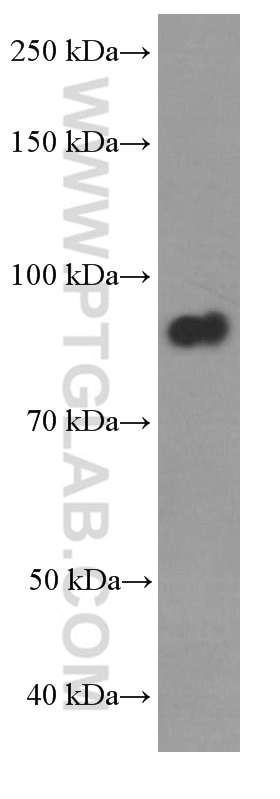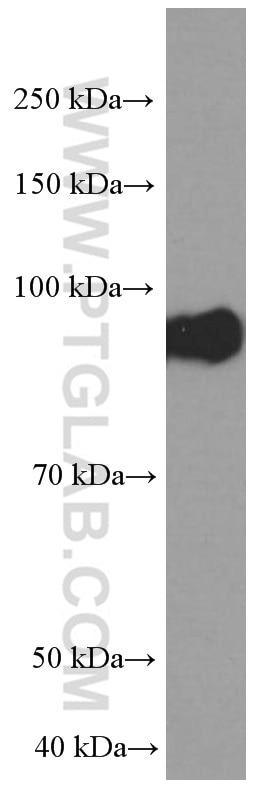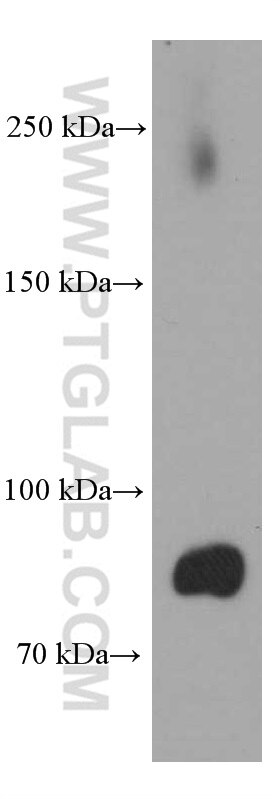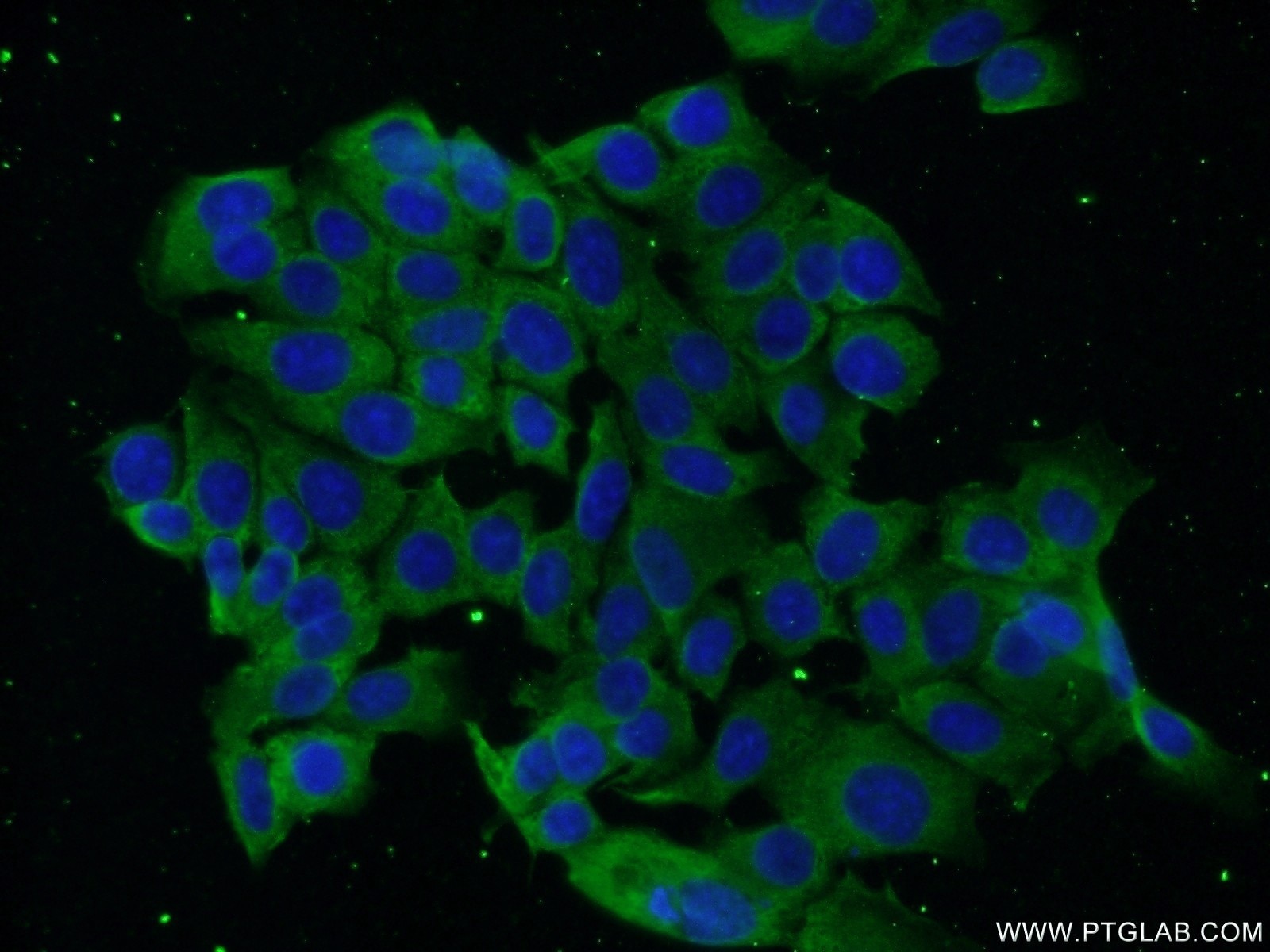Validation Data Gallery
Tested Applications
| Positive WB detected in | fetal human brain tissue, mouse brain tissue, pig brain tissue |
| Positive IF/ICC detected in | MCF-7 cells |
Recommended dilution
| Application | Dilution |
|---|---|
| Western Blot (WB) | WB : 1:500-1:2000 |
| Immunofluorescence (IF)/ICC | IF/ICC : 1:50-1:500 |
| It is recommended that this reagent should be titrated in each testing system to obtain optimal results. | |
| Sample-dependent, Check data in validation data gallery. | |
Product Information
60336-1-Ig targets BRINP1 in WB, IF/ICC, ELISA applications and shows reactivity with human, pig, mouse samples.
| Tested Reactivity | human, pig, mouse |
| Host / Isotype | Mouse / IgG2c |
| Class | Monoclonal |
| Type | Antibody |
| Immunogen | BRINP1 fusion protein Ag6588 相同性解析による交差性が予測される生物種 |
| Full Name | deleted in bladder cancer 1 |
| Calculated molecular weight | 761 aa, 88 kDa |
| Observed molecular weight | 88 kDa |
| GenBank accession number | BC021560 |
| Gene Symbol | BRINP1 |
| Gene ID (NCBI) | 1620 |
| RRID | AB_2881445 |
| Conjugate | Unconjugated |
| Form | Liquid |
| Purification Method | Protein A purification |
| UNIPROT ID | O60477 |
| Storage Buffer | PBS with 0.02% sodium azide and 50% glycerol , pH 7.3 |
| Storage Conditions | Store at -20°C. Stable for one year after shipment. Aliquoting is unnecessary for -20oC storage. |
Background Information
BRINP1, also known as DBC1 and FAM5A, inhibits cell proliferation by negative regulation of the G1/S transition. It mediates cell death which is not of the classical apoptotic type and regulates expression of components of the plasminogen pathway.
Protocols
| Product Specific Protocols | |
|---|---|
| WB protocol for BRINP1 antibody 60336-1-Ig | Download protocol |
| IF protocol for BRINP1 antibody 60336-1-Ig | Download protocol |
| Standard Protocols | |
|---|---|
| Click here to view our Standard Protocols |



